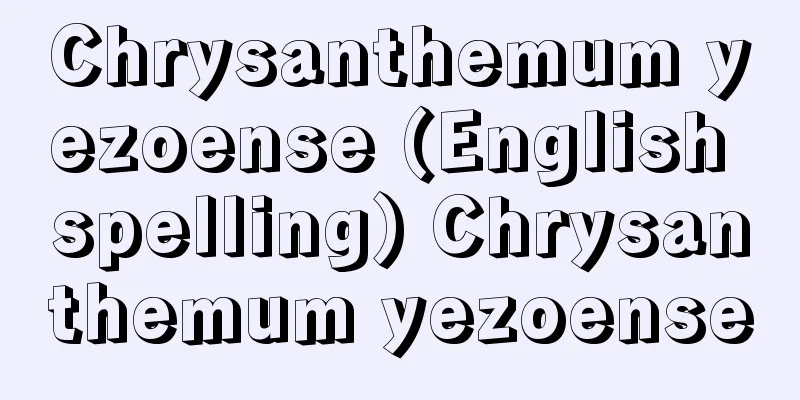Haya Monogatari - Haya Monogatari

|
A form of storytelling. It is so named because it is a humorous story told at a fast pace. In the Muromachi period, between the performances of biwa monks reciting heikyoku (a traditional Japanese tune), trainee koboshi (a novice priest) would recite ai-kyogen (a type of interlude tale) in one breath to take a breather, and to relieve the tension of the solemn story. In the early modern period, hayemonogatari was also performed during joruri recitations. There were even blind monks who were more skilled at hayemonogatari than heikyoku or joruri. Hayemonogatari was popular among the common people because it used familiar subjects from the everyday life, and was sometimes performed as an independent storytelling piece, breaking away from its secondary role as ai-storytelling. Documents remain in the Oku-joruri of the Tohoku region and in the Hokuriku region. It is also known as "tenpo monogatari" or "tenpo" because it begins with phrases such as "Sore tenpo katari soro" ("That's a story I'll tell you") or "Sore monogatari katari mou shou" ("I'll tell you a story I'll tell you") It is a humorous story that primarily involves word play, but what is notable is that it also has the character of a celebratory speech. [Kazuo Sekiyama] "Yama Kiyoshi's 'Hayamonogatari Memoirs' (1964, Koyo Shobo)" ▽ "Yaguchi Hiroyasu (ed.) 'Dewa no Shonai Hayamonogatari Chronicles' (1977, Tohoku Publishing Planning)" Source: Shogakukan Encyclopedia Nipponica About Encyclopedia Nipponica Information | Legend |
|
語物(かたりもの)の一形式。ユーモラスな物語を早口で語ったのでこの名がある。室町時代には、琵琶(びわ)法師が平曲(へいきょく)を語る弾奏の間に、修業中の小法師などが息抜きのために間(あい)狂言として一息に語るもので、荘重な物語の緊張感をほぐすために行うものであった。近世に入ると、浄瑠璃(じょうるり)を語る間にも早物語が行われた。平曲や浄瑠璃よりも早物語のほうが巧みな盲僧もあった。早物語は、身辺の親しみやすいものを題材としていたので庶民の間でもてはやされ、「間(あい)語り」という副次的な性格を離れて独立の語物として口演されることもあった。東北地方の奥浄瑠璃や北陸地方に資料が残されている。「それてんぽ語り候」「そーれ物語かたり申そう」などの文句で語り出すので、「てんぽう物語」「てんぽ」という異称がある。言語遊戯を主にした滑稽(こっけい)物語であるが、祝言の性格をもっているところに特色がある。 [関山和夫] 『安間清著『早物語覚之書』(1964・甲陽書房)』▽『矢口裕康編『出羽の庄内早物語聞書』(1977・東北出版企画)』 出典 小学館 日本大百科全書(ニッポニカ)日本大百科全書(ニッポニカ)について 情報 | 凡例 |
>>: Fast return mechanism - Fast return mechanism
Recommend
"Omi Genji (■1) Lecture" - Omi Genji Shikata Koshaku
...Of these, "Nanban Tetsu Goto Menuki"...
Actophilornis albinucha (English spelling) Actophilornisalbinucha
… [Shinji Takano]. … *Some of the terminology tha...
Pitman, I. (English notation) PitmanI
...Then, the Byrom system (1767) and the Taylor s...
Air environment - air quality
...The state of the air can be considered as (1) ...
Butterfly Dream
Year of death: 24th December 1796 (2nd February 17...
Firebird
1. A manga work by Tezuka Osamu. A long series dep...
Atropa acuminata (English spelling) Atropaacuminata
…[Hiroshi Aramata]. … *Some of the terminology th...
Mohr, EWM (English spelling)MohrEWM
…Sachs thought that the problem of the number of ...
Orléanistes - Orléanist
A political party that claimed the French throne f...
Italian notation - Italian notation
...By the end of the 14th century, technically ad...
Folklore Fellows Communication (English)
…He was appointed the first lecturer in folklore ...
Eikichi Prefecture - Eikichi Prefecture
…During the Qing Dynasty, Jilin was the headquart...
Chrysanthemum makinoi (English spelling) Chrysanthemummakinoi
…[Nitta Aya]. . . *Some of the terminology that m...
Eka - Drawing
…The most revered sacred place of Kannon is Mount...
Kojiro Sasaki - Sasaki Kojiro
A swordsman from the early modern period. His sto...
![Ars moriendi (English spelling) [Latin]](/upload/images/67cade21cb9c2.webp)








